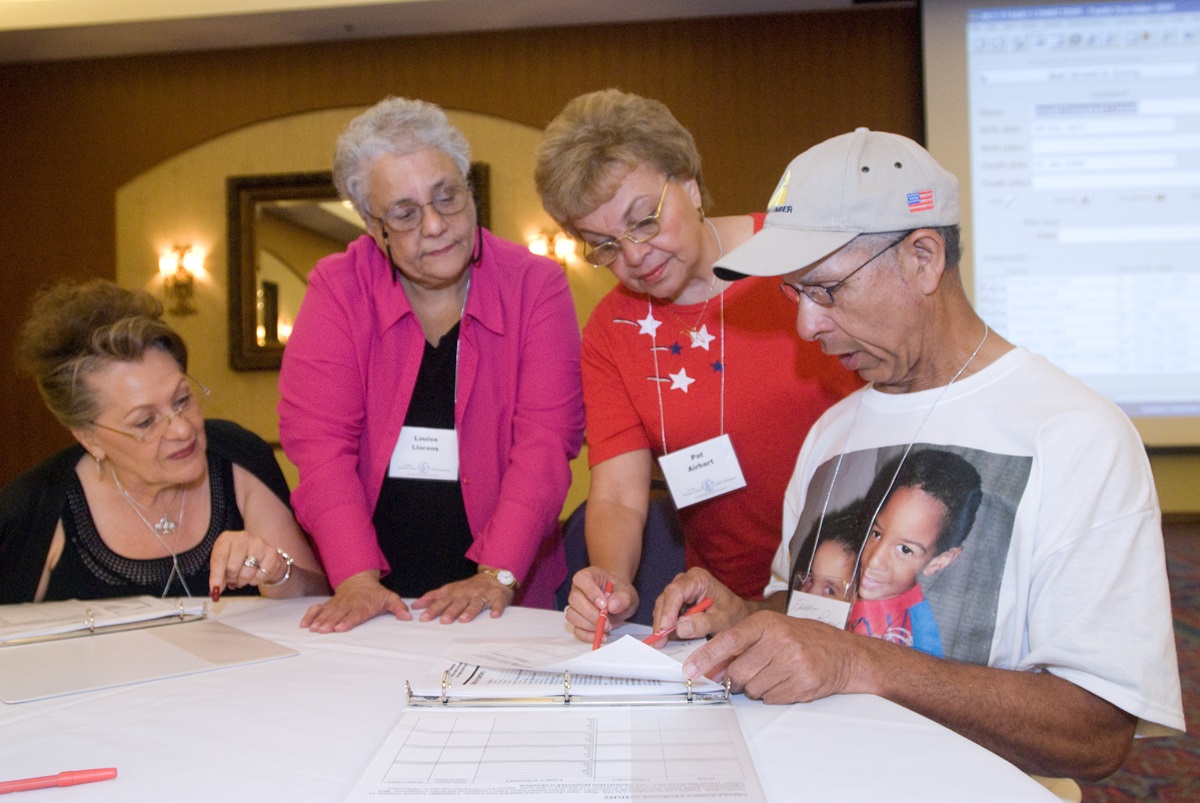Cheers to 25 Years!
A rejuvenated Creole Heritage Center continues to empower Louisiana Creoles
Published: November 30, 2023
Last Updated: February 29, 2024

NSU Creole Heritage Center
Working on genealogy at the 2008 Creole Heritage Celebration.
Today the center is building on the tireless work of its previous leaders like Janet Ravare Colson, Dr. Pete Gregory, and Loletta Wynder and reaffirming its leadership role in revitalizing, mobilizing, and empowering Louisiana Creoles and educating all on Creoles’ contributions to our world. This past summer staff and supporters completed a strategic plan to guide the center’s immediate future. The awarding of $100,000 out of Louisiana’s 2022–2023 budget surplus in June, the center’s largest single, non-salary designated funding ever received from the State, is allowing the center to busily begin multiple initiatives in this plan. These include the development of curriculum for K–12 teachers, permanent and traveling exhibits, and an online “Creole 101” resource, as well as expanding the center’s respected genealogical resources and improving its infrastructure for better public accessibility to all its holdings and resources.
We at the center cannot wait to share the results of our next chapter, results that will recognize all Creoles and how lineage, law, location, wealth, and chance influenced Creole histories to vary widely within and compared to other families. Louisiana Creoles come in all colors and appearances, and, due to migration patterns, can be found throughout the United States. Their resilience in the face of racism and Americanization and their emphasis on family enabled them to continue their culture and adapt it across generations. Meanwhile the value and significance of Louisiana Creoles remains underacknowledged and misunderstood. We invite all Creoles—and all who value preserving and celebrating Louisiana’s diverse and vibrant culture and history—to join us in becoming a part of this continuing Creole renaissance. Visit nsula.edu/creole for more details on the center’s past, upcoming initiatives, and how to support the center.
